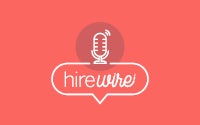How overwhelmed talent acquisition teams are harmful for business
At some point we have all said that periods of overwhelm and stress are just a normal part of working in recruitment – we all play a part in normalising it. But the operational, financial and emotional cost of overwhelmed hiring teams cannot be ignored.
From the great resignation to the great application and now the great expectation, never before have we experienced a market so driven by candidates. It is a brilliant time to be a job seeker. But every mountain climbed casts a shadow and there is another side to the story which is rarely spoken about – the impact on those people tasked with filling roles.
Talent acquisition functions are overworked, overstretched and overwhelmed. It’s bad for the team and your bottom line. Those who ignore rising overwhelm in their hiring teams may find that by the time it’s recognised as a problem, it’s already too late, and the costly damage has already happened.
It’s not our intention to scold organisations, far from it. We’re simply here to shed light on the impact an ever-shifting talent market has on hiring teams and organisations. Over a series of blog articles, we will share a helpful roadmap on how to overcome and alleviate pressures in your talent acquisition function.
Operations
Even the best of us have the potential to be irritable with our stakeholders when we’re tired and worried about not delivering on commitments – TA teams are not invincible, nor immune to the side effects of workplace stress. Therefore it isn’t surprising how customer experience is often one of the first victims of overworked teams. A period of poor candidate and hiring manager experience can cause potentially lasting damage to your employer value proposition and reputation in key hiring markets. This can result in failure to meet important deadlines and increases the likelihood of project collapse.
When teams are under pressure to deliver they’re tempted to operate outside of processes in order to complete tasks quicker. They often see manual, repetitive governance checks as confining bottlenecks that slow the recruitment process down, rather than necessary compliance steps. Circumnavigating compliance has a lot of operational (and even legal) risk. Overstretched recruitment teams have the potential to harm an organisation’s reputation.
Finances
Ample studies in recent years have evidenced the financial cost of workplace stress – a commonly acknowledged "people" priority among business leaders. But what are the financial impacts specific to overwhelmed TA teams? Firstly, the most obvious is a prolific spend with recruitment agencies. Direct fill rates quickly deteriorate when internal recruiters are faced with more open roles than they can manage. A situation dubbed "open-rec overwhelm" by those in the industry. In this scenario, recruitment costs can rise astronomically as more and more roles are passed to agencies. This can lead to compounded costs per hire when you add up the time and fees spent.
Overworked employees leave the organisations who are stressing them out. We haven’t even mentioned the cost of finding and replacing recruiters yet! As competition for recruiters grows fiercer, and more expensive, however, the companies that take steps to hold onto their recruiters will have a real advantage.
It isn’t just about money spent, but also missed revenue. If a TA team is swamped by the mechanics of recruitment, like administration or coordination, they’re unlikely to have the capacity to effectively attract and source the skills you need to deliver projects and commitments to clients – resulting in missed revenue opportunities. Research shows that skill gaps are currently costing the U.S. economy around $13 billion per month and estimates that number will continue to rise with Deloitte citing an estimated $2.5 trillion total cost over the next decade.
Emotions
A rapidly changing job landscape is not just adding workload through the number of open roles, but it’s also taking a toll on recruitment teams. If your recruiters are acting differently it can be a sign that they’re stressed. TA leaders should look out for loss of motivation, commitment and confidence – as well as increased emotional reactions, such as being more aggressive or tearful. Behaviours like lateness and absenteeism becoming more frequent is a sign, as well as more sickness absence. The simple fact is, happy employees are healthier and more productive.
Businesses who get ahead of the overwhelm epidemic will have the advantage of a happier, healthier talent acquisition team. This means attracting the best talent, consistent hiring manager and candidate experience, reduced operational risks, compliant processes, increased retention and a lower risk of project failure.
Are you a decision-maker looking for a roadmap on how to help your talent acquisition team move from overwhelm to optimum performance? Read our next article for three practical steps on how to do just that.













